By Nina Heyn – Your Culture Scout
We have selected some good movies and interesting documentaries that explore different aspects of freedom. You could, if you wish, also make your own list of cinematic examples. In the meantime, here is our “starter” list.
FEATURE FILMS AND TELEVISION SERIES
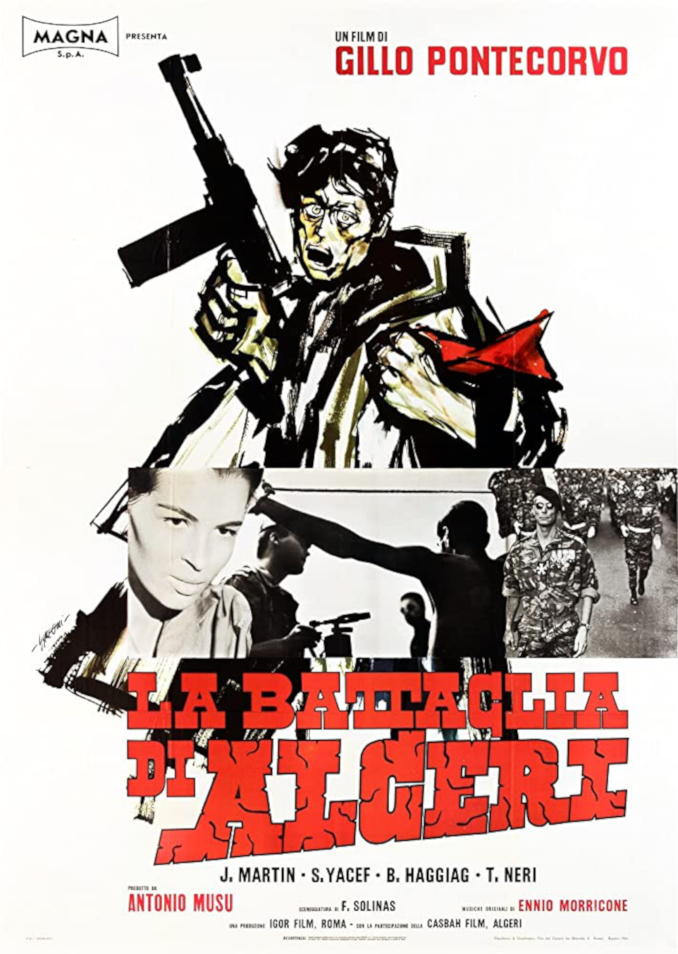 THE BATTLE OF ALGIERS (1966) The Battle of Algiers tells the story of the 1950s Algerian fight for independence from France. A black-and-white classic often shown at film schools as a milestone in the history of cinema, it also perfectly illustrates how no amount of repression can remove the idea of freedom once it has entered the minds of an entire nation. Algeria’s colonial past is still having tragic repercussions in the daily life of France today. THE BATTLE OF ALGIERS (1966) The Battle of Algiers tells the story of the 1950s Algerian fight for independence from France. A black-and-white classic often shown at film schools as a milestone in the history of cinema, it also perfectly illustrates how no amount of repression can remove the idea of freedom once it has entered the minds of an entire nation. Algeria’s colonial past is still having tragic repercussions in the daily life of France today. |
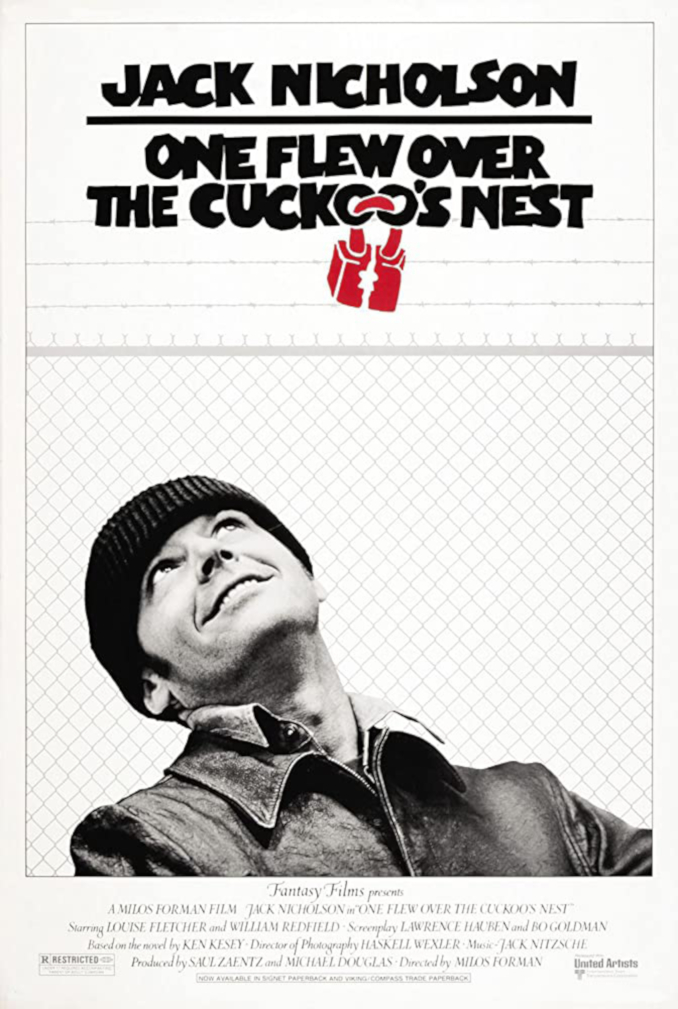 ONE FLEW OVER THE CUCKOO’S NEST (1975) The 1970s were a great period in American cinema for outstanding movies that explored personal freedom and portrayed society’s disillusionment with the establishment. Some of them were based on the “Great American Novels” of the counterculture—novels that immediately preceded the rebellious ‘70s. One Flew Over the Cuckoo’s Nest is one of the greatest examples of this type of novel-to-film adaptation. Jack Nicholson’s portrayal of the non-conformist McMurphy launched the actor’s stardom and gave generations to come an iconic character illustrating a man’s confrontation with the crush of bureaucratic power. McMurphy, a convict who is trying to fake a mental condition in the months remaining before his release, is a leader of civil disobedience among the patients in a psychiatric hospital. His tragic battle of wills with the tyrannical Nurse Ratched is a perfect metaphor for any struggle with oppressive authority. ONE FLEW OVER THE CUCKOO’S NEST (1975) The 1970s were a great period in American cinema for outstanding movies that explored personal freedom and portrayed society’s disillusionment with the establishment. Some of them were based on the “Great American Novels” of the counterculture—novels that immediately preceded the rebellious ‘70s. One Flew Over the Cuckoo’s Nest is one of the greatest examples of this type of novel-to-film adaptation. Jack Nicholson’s portrayal of the non-conformist McMurphy launched the actor’s stardom and gave generations to come an iconic character illustrating a man’s confrontation with the crush of bureaucratic power. McMurphy, a convict who is trying to fake a mental condition in the months remaining before his release, is a leader of civil disobedience among the patients in a psychiatric hospital. His tragic battle of wills with the tyrannical Nurse Ratched is a perfect metaphor for any struggle with oppressive authority. |
|
|
|
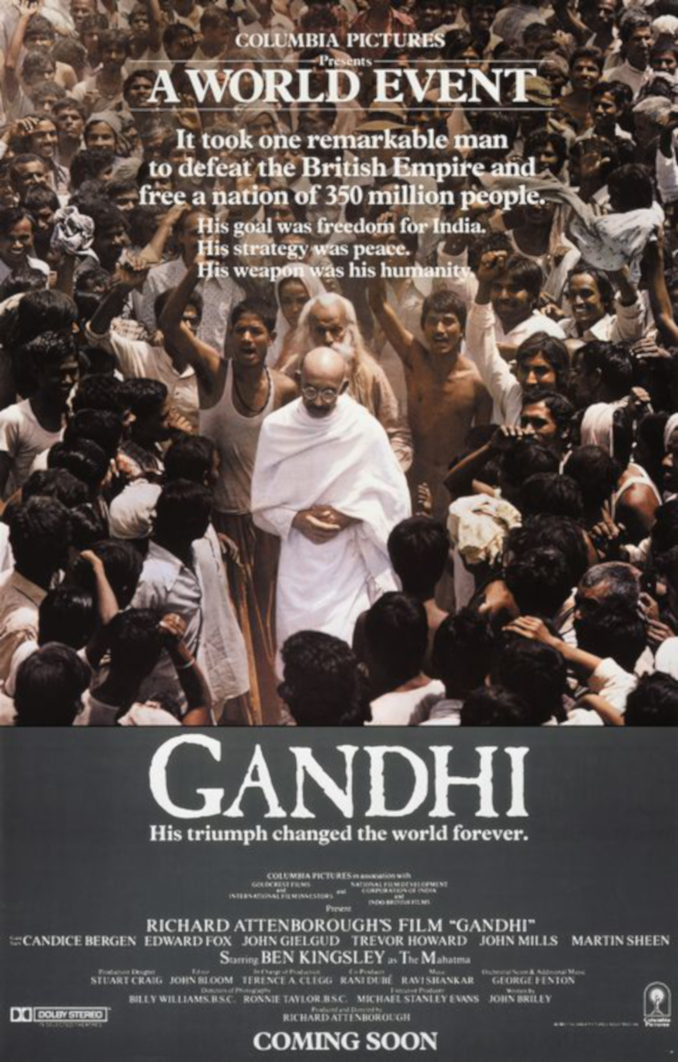 GANDHI (1982) A meticulously staged biopic of the man who proved that passive resistance can be a formidable weapon in the hands of a determined man. That man was Mahatma Gandhi, who changed the lives of millions of people and contributed to the fall of colonialism. His success at getting the Indian population’s rights recognized in South Africa in the early 1900s won him an invitation to India, where he led a passive resistance movement that culminated in Britain granting India’s independence in 1947 GANDHI (1982) A meticulously staged biopic of the man who proved that passive resistance can be a formidable weapon in the hands of a determined man. That man was Mahatma Gandhi, who changed the lives of millions of people and contributed to the fall of colonialism. His success at getting the Indian population’s rights recognized in South Africa in the early 1900s won him an invitation to India, where he led a passive resistance movement that culminated in Britain granting India’s independence in 1947 |
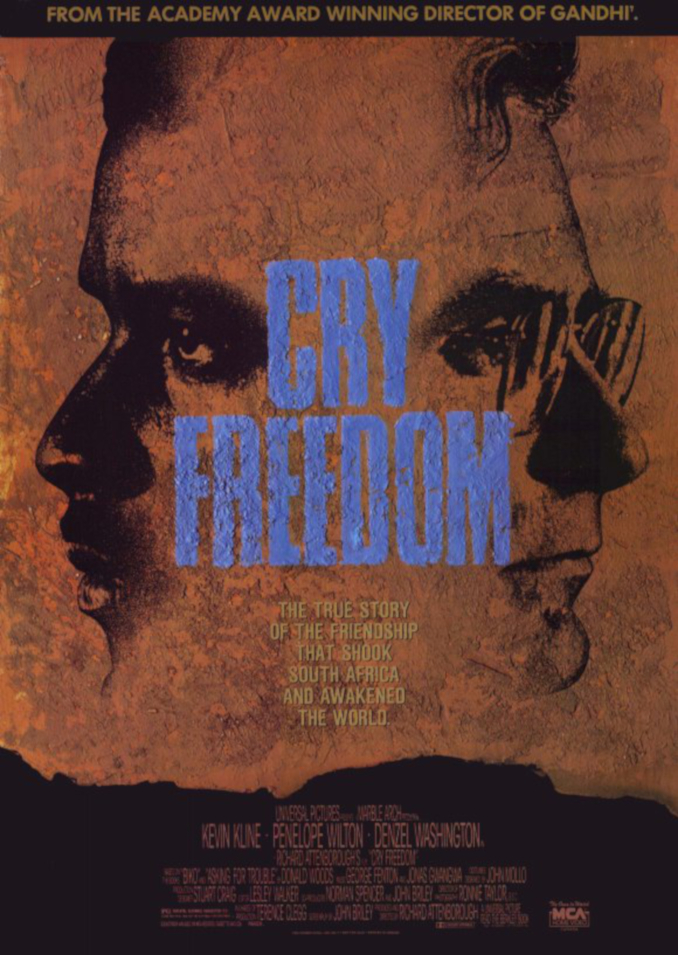 CRY FREEDOM (1987 When Richard Attenborough directed this movie in 1987, South Africa was some years away from the slow process that, in the early 1990s, began dismantling apartheid. Cry Freedom is based on the true story of an unlikely friendship between white South African journalist Donald Woods (played by Kevin Kline) and black anti-apartheid activist Stephen Biko (played by Denzel Washington). Through numerous interviews, Woods gained his respect for Biko and the freedom fight and decided to denounce the political system of apartheid. Soon after, he and his family had to flee for their lives. CRY FREEDOM (1987 When Richard Attenborough directed this movie in 1987, South Africa was some years away from the slow process that, in the early 1990s, began dismantling apartheid. Cry Freedom is based on the true story of an unlikely friendship between white South African journalist Donald Woods (played by Kevin Kline) and black anti-apartheid activist Stephen Biko (played by Denzel Washington). Through numerous interviews, Woods gained his respect for Biko and the freedom fight and decided to denounce the political system of apartheid. Soon after, he and his family had to flee for their lives. |
|
|
|
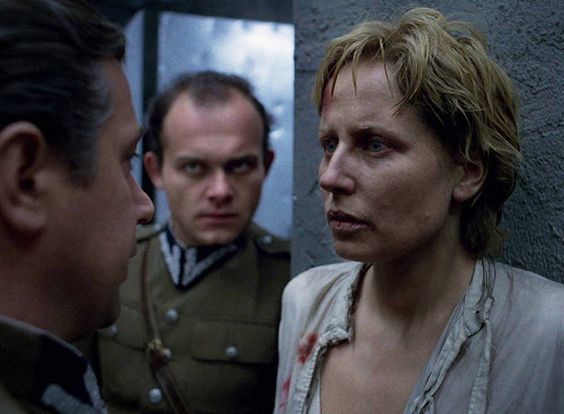 THE INTERROGATION (1989) Director Ryszard Bugajski created this movie during a brief moment of political freedom in communist Poland—right after the 1980 victory of Solidarity and just before the imposition of martial law in 1981. By the time the movie finished production, the political scene had changed, leaving behind a brief period of political freedom and returning to a clampdown on any criticism of the communist regime. The film tells the story of a Stalinist-era woman who accidentally gets mixed up in a political inquiry and ends up imprisoned and tortured by the secret service. Although this no-holds-barred account of the destruction of an individual became an underground hit, it was instantly banished and censored, and caused Bugajski to be expelled from Poland. He spent decades as a forced emigrant before he was able to return to his fatherland and resume his artistic career. The movie not only is an artistic masterpiece but is also a textbook illustration of the institutionalized lack of freedom that arises when a totalitarian state holds absolute power over its citizens. Below see the director discussing his 2013 movie Closed Circuit about corruption of state officials (there is no trailer for The Interrogation). THE INTERROGATION (1989) Director Ryszard Bugajski created this movie during a brief moment of political freedom in communist Poland—right after the 1980 victory of Solidarity and just before the imposition of martial law in 1981. By the time the movie finished production, the political scene had changed, leaving behind a brief period of political freedom and returning to a clampdown on any criticism of the communist regime. The film tells the story of a Stalinist-era woman who accidentally gets mixed up in a political inquiry and ends up imprisoned and tortured by the secret service. Although this no-holds-barred account of the destruction of an individual became an underground hit, it was instantly banished and censored, and caused Bugajski to be expelled from Poland. He spent decades as a forced emigrant before he was able to return to his fatherland and resume his artistic career. The movie not only is an artistic masterpiece but is also a textbook illustration of the institutionalized lack of freedom that arises when a totalitarian state holds absolute power over its citizens. Below see the director discussing his 2013 movie Closed Circuit about corruption of state officials (there is no trailer for The Interrogation). |
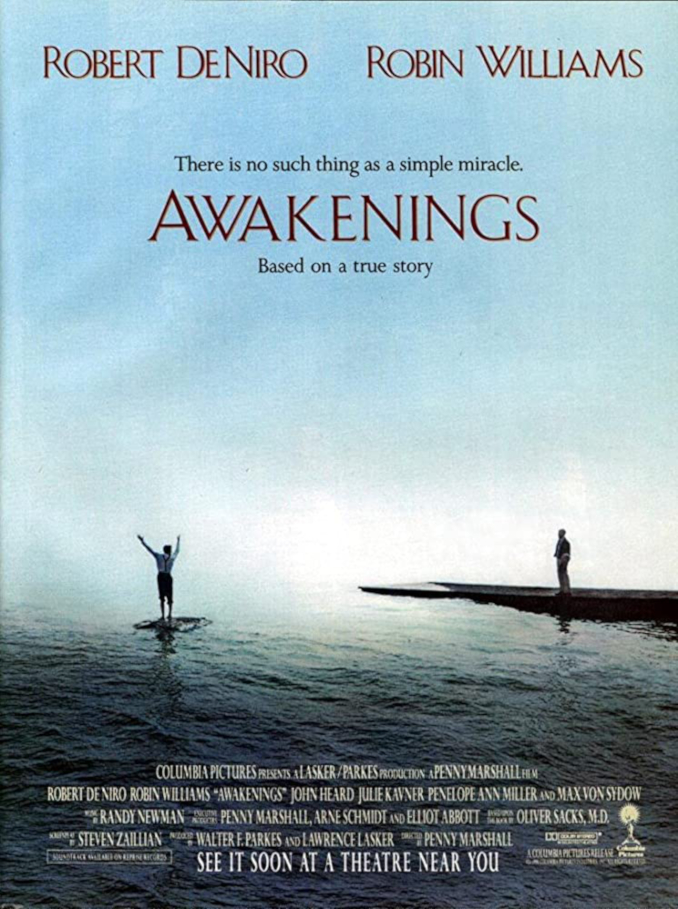 AWAKENINGS (1990) Based on neurologist Oliver Sack’s book of the same title, this film tells the true story of Dr. Sacks (fictionalized as Dr. Malcolm Sayer) and his discovery of dopamine’s ability to awaken catatonic patients. Sayer wrote of his work: “Another awakening took place; that the human spirit is more powerful than any drug—and THAT is what needs to be nourished: with work, play, friendship, family. THESE are the things that matter.” The ability to live a normal, ordinary life is a type of freedom that is denied to people with disabilities and illnesses. This moving film tries to remind everyone of the freedom that a healthy body offers and an infirm one takes away. AWAKENINGS (1990) Based on neurologist Oliver Sack’s book of the same title, this film tells the true story of Dr. Sacks (fictionalized as Dr. Malcolm Sayer) and his discovery of dopamine’s ability to awaken catatonic patients. Sayer wrote of his work: “Another awakening took place; that the human spirit is more powerful than any drug—and THAT is what needs to be nourished: with work, play, friendship, family. THESE are the things that matter.” The ability to live a normal, ordinary life is a type of freedom that is denied to people with disabilities and illnesses. This moving film tries to remind everyone of the freedom that a healthy body offers and an infirm one takes away. |
|
|
|
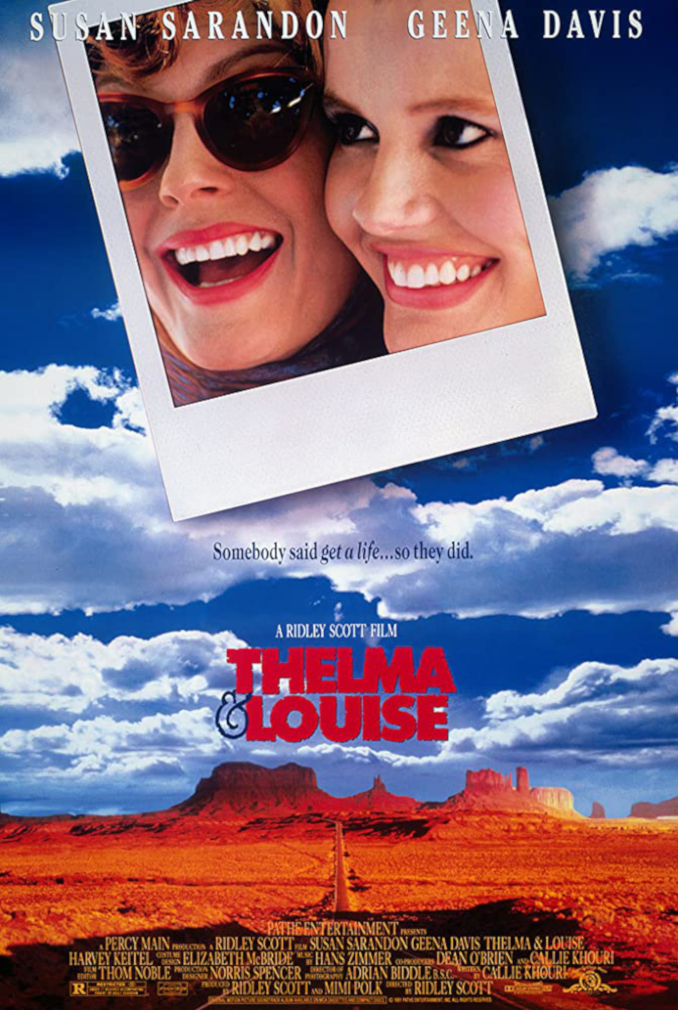 THELMA & LOUISE (1991) Long before the 21st-century outrage that fueled the #MeToo movement, there was a bubbling of discontent among millions of abused and underappreciated women. The story of bullied housewife Thelma (Geena Davis), who pairs up with abused and assaulted waitress Louise (Susan Sarandon), became an instant classic. The two women’s rebellious spirit, the spontaneous road trip that liberates them, and the unexpected dramatic ending have resonated with generations of female viewers. This is a female response to the counterculture movies of earlier decades that focused on various male rebellions against the loss of freedom. THELMA & LOUISE (1991) Long before the 21st-century outrage that fueled the #MeToo movement, there was a bubbling of discontent among millions of abused and underappreciated women. The story of bullied housewife Thelma (Geena Davis), who pairs up with abused and assaulted waitress Louise (Susan Sarandon), became an instant classic. The two women’s rebellious spirit, the spontaneous road trip that liberates them, and the unexpected dramatic ending have resonated with generations of female viewers. This is a female response to the counterculture movies of earlier decades that focused on various male rebellions against the loss of freedom. |
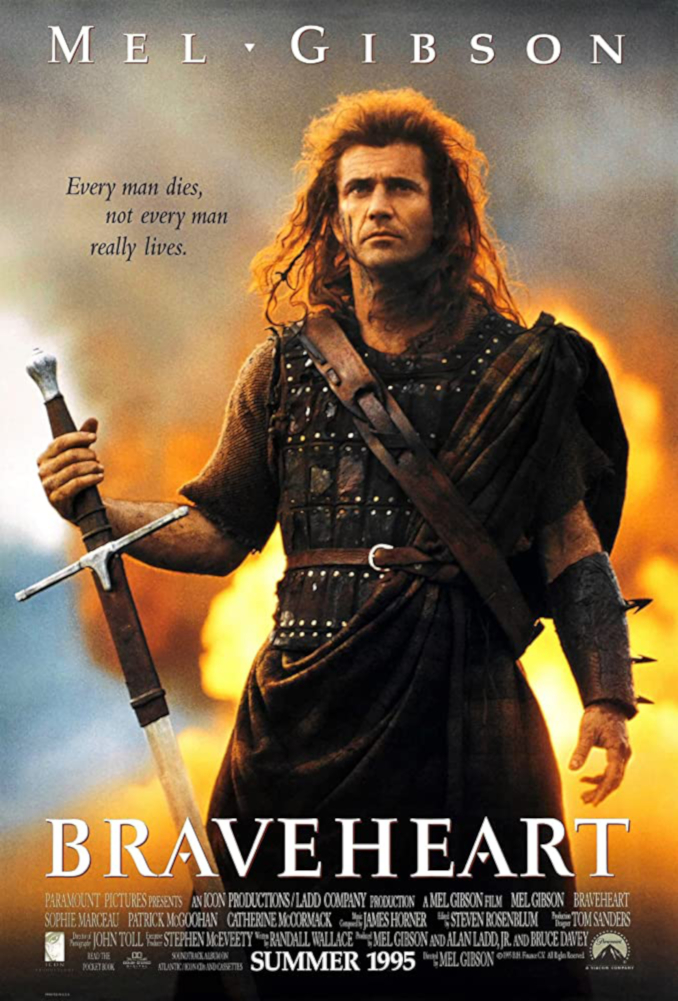 BRAVEHEART (1995) In Scotland, knight William Wallace, a 13th-century battle leader, embodies the Scots’ centuries-long struggle for independence from the English crown. For audiences worldwide, Braveheart’s account of Wallace’s life story has served as an illustration of the fight for national sovereignty—a cause of wars that have taken place in all corners of the globe and throughout history. Mel Gibson, covered in the famous blue war paint, stars as Wallace, a fearless warrior who leads battles to free Scottish lands from the southern invasion of King Edward I. BRAVEHEART (1995) In Scotland, knight William Wallace, a 13th-century battle leader, embodies the Scots’ centuries-long struggle for independence from the English crown. For audiences worldwide, Braveheart’s account of Wallace’s life story has served as an illustration of the fight for national sovereignty—a cause of wars that have taken place in all corners of the globe and throughout history. Mel Gibson, covered in the famous blue war paint, stars as Wallace, a fearless warrior who leads battles to free Scottish lands from the southern invasion of King Edward I. |
|
|
|
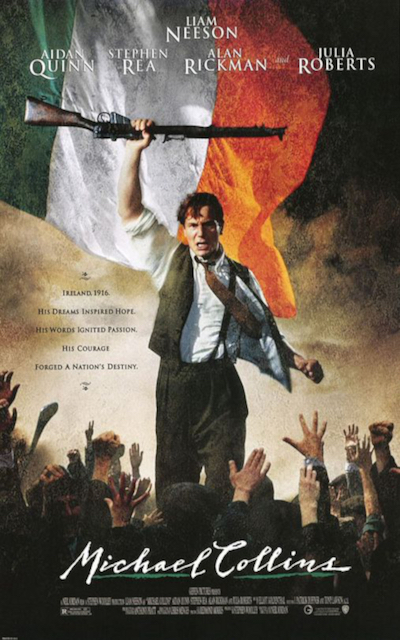 MICHAEL COLLINS (1996) Starring a very young Liam Neeson, as well as Alan Rickman, Julia Roberts, Stephen Rea, and Aidan Quinn, this biopic of Michael Collins tells the story of the Irish hero’s fight for independence, which ended with the creation of an Irish state in 1922. As Collins eventually learns, being a leader of urban guerilla war requires different qualifications than being a politician. Director Neil Jordan chronicles Collins’ heroic and tragic life as an evolution from a desperate revolutionary to a negotiator who gets weary of constant bloodshed. MICHAEL COLLINS (1996) Starring a very young Liam Neeson, as well as Alan Rickman, Julia Roberts, Stephen Rea, and Aidan Quinn, this biopic of Michael Collins tells the story of the Irish hero’s fight for independence, which ended with the creation of an Irish state in 1922. As Collins eventually learns, being a leader of urban guerilla war requires different qualifications than being a politician. Director Neil Jordan chronicles Collins’ heroic and tragic life as an evolution from a desperate revolutionary to a negotiator who gets weary of constant bloodshed. |
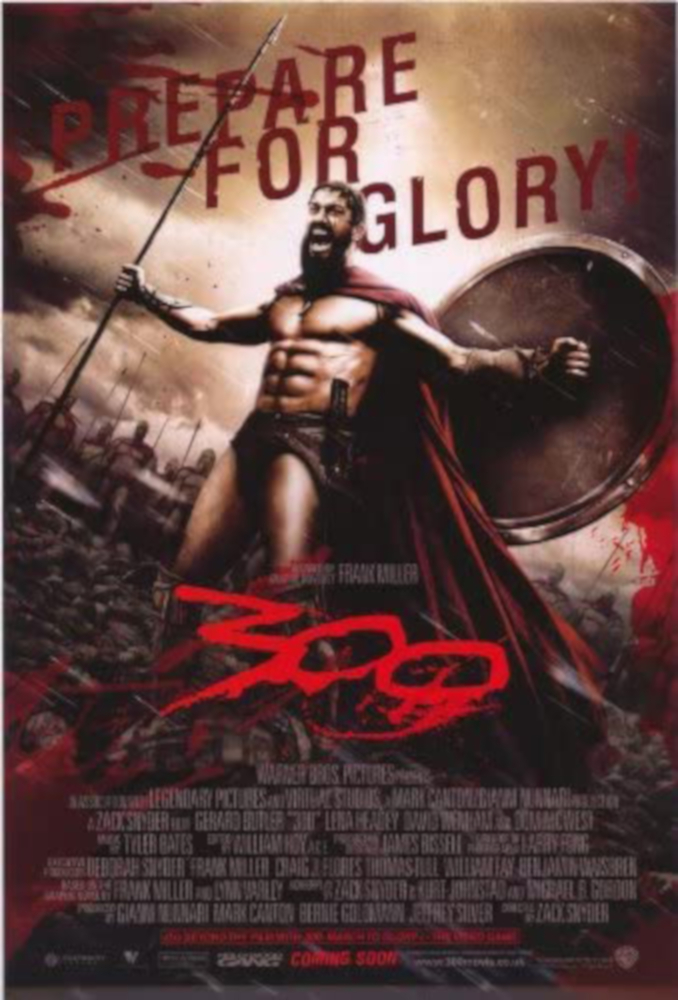 300 (2006) The story of brave Spartans, still vivid in our collective memory, is told between bookends of a Spartan King Leonidas’s youth and the Battle of Platea that effectively ended Persian invasions of Greece. The rest of the movie is a highly charged retelling of the battle of Thermopylae, where several hundred Spartans fought Persian King Xerxes’s thousands at a narrow mountain pass. In the role of a lifetime, Gerard Butler stars as the uncompromising King Leonidas. For one of the best “battle-cry” speeches, check out the final scene before the Battle of Platea. 300 (2006) The story of brave Spartans, still vivid in our collective memory, is told between bookends of a Spartan King Leonidas’s youth and the Battle of Platea that effectively ended Persian invasions of Greece. The rest of the movie is a highly charged retelling of the battle of Thermopylae, where several hundred Spartans fought Persian King Xerxes’s thousands at a narrow mountain pass. In the role of a lifetime, Gerard Butler stars as the uncompromising King Leonidas. For one of the best “battle-cry” speeches, check out the final scene before the Battle of Platea. |
|
|
|
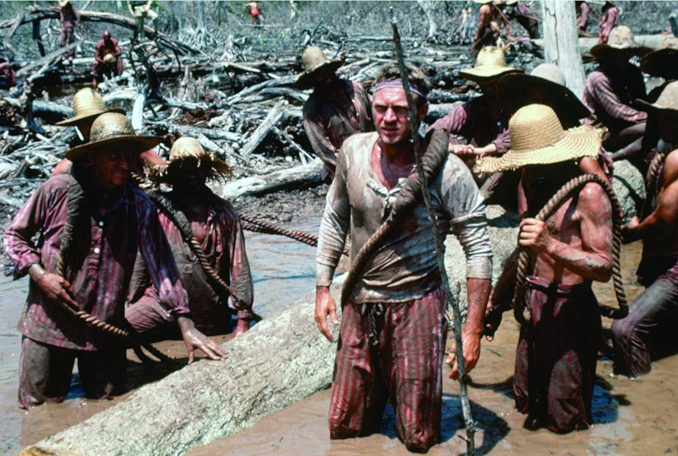 PAPILLON (1973 VERSION) A prison escape story, an impassioned criticism of inhumane penal colonies, and above all, a story of one man’s unyielding thirst for freedom, Papillon is based on the true story of a French convict. Steve McQueen and Dustin Hoffman appear in iconic roles as “Papillon” and his friend Louis—two men sent to a French Guyana prison in the 1930s. The 1973 movie is a classic that is still better than a more recent version from 2017. Interestingly, the script was written by Dalton Trumbo, one of the best Hollywood screenwriters, who himself experienced an assault on his civil rights since he was persecuted during the McCarthy era. PAPILLON (1973 VERSION) A prison escape story, an impassioned criticism of inhumane penal colonies, and above all, a story of one man’s unyielding thirst for freedom, Papillon is based on the true story of a French convict. Steve McQueen and Dustin Hoffman appear in iconic roles as “Papillon” and his friend Louis—two men sent to a French Guyana prison in the 1930s. The 1973 movie is a classic that is still better than a more recent version from 2017. Interestingly, the script was written by Dalton Trumbo, one of the best Hollywood screenwriters, who himself experienced an assault on his civil rights since he was persecuted during the McCarthy era. |
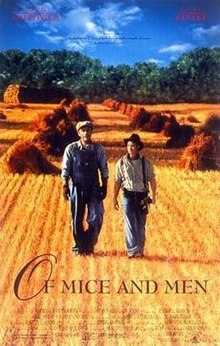 OF MICE AND MEN (1992) Sometimes freedom means economic freedom, and owning your own land is a path to such independence. Steinbeck’s classic novel about rural America in the time of the Great Depression, Of Mice and Men, has been turned into a film several times: in 1939 with Lon Chaney, in 1968 with George Segal, in 1992 with John Malkovich, and in 2014 with James Franco. The 1992 film is possibly the best version. OF MICE AND MEN (1992) Sometimes freedom means economic freedom, and owning your own land is a path to such independence. Steinbeck’s classic novel about rural America in the time of the Great Depression, Of Mice and Men, has been turned into a film several times: in 1939 with Lon Chaney, in 1968 with George Segal, in 1992 with John Malkovich, and in 2014 with James Franco. The 1992 film is possibly the best version. |
|
|
|
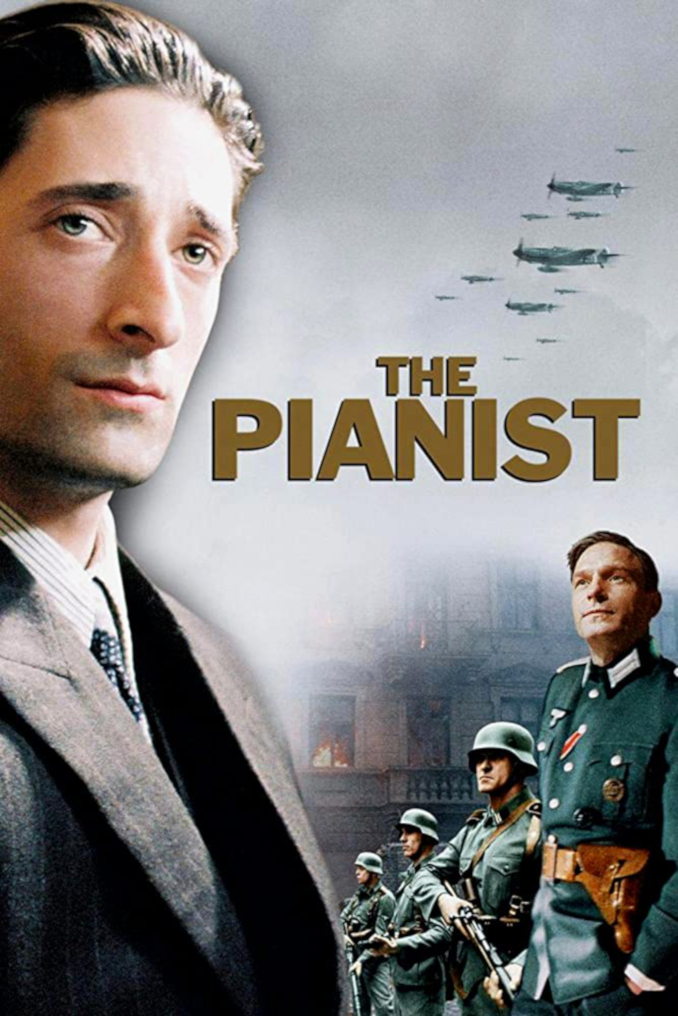 THE PIANIST (2002) This is a true story about the survival of the Polish-Jewish musician Wladyslaw Szpilman in German-occupied Warsaw. From the first day of WWII, this gentle concert pianist starts losing everything—his home, his position in society, his family, his nation, and then his access to food, shelter, and safety. After the liquidation of the Warsaw Ghetto in 1943 and the 1944 Warsaw Uprising, Szpilman becomes a fugitive in his own city, surviving on his wits in the ruins. Music becomes the only thing that still makes him human—and something that can transcend the hostility of his enemy. This the famous piano scene: THE PIANIST (2002) This is a true story about the survival of the Polish-Jewish musician Wladyslaw Szpilman in German-occupied Warsaw. From the first day of WWII, this gentle concert pianist starts losing everything—his home, his position in society, his family, his nation, and then his access to food, shelter, and safety. After the liquidation of the Warsaw Ghetto in 1943 and the 1944 Warsaw Uprising, Szpilman becomes a fugitive in his own city, surviving on his wits in the ruins. Music becomes the only thing that still makes him human—and something that can transcend the hostility of his enemy. This the famous piano scene: |
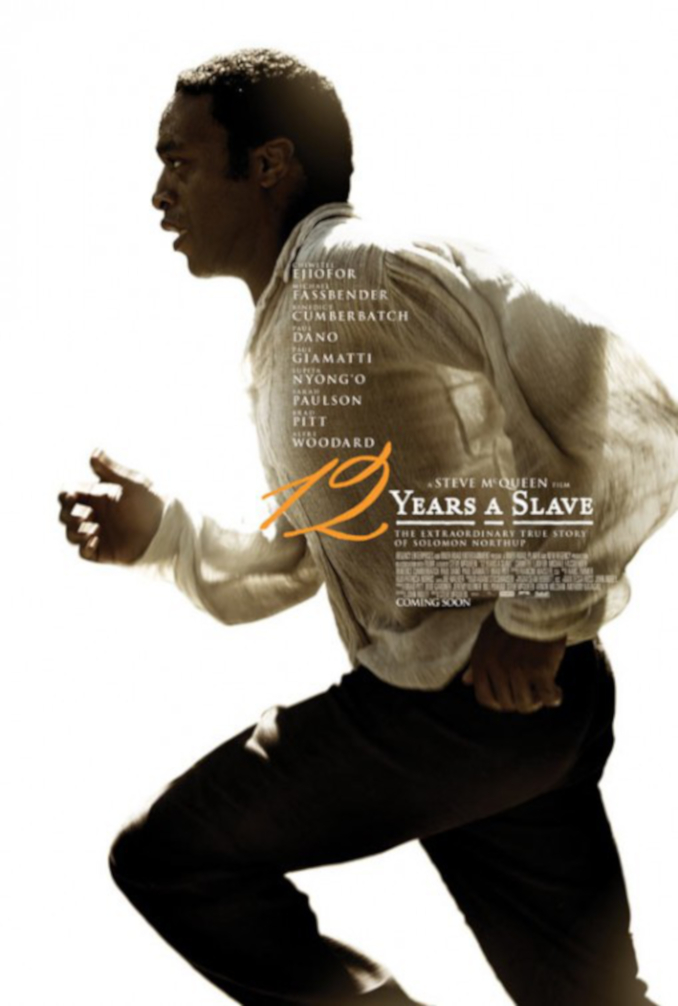 12 YEARS A SLAVE (2013) Another instant cinematic classic, 12 Years a Slave recounts the story of a man’s stubborn pursuit of the chance to regain freedom. The movie is based on the true story of Solomon Northup (Chiwetel Ejiofor), a free man from New York State who was kidnapped into slavery in the American south in the mid-1800s. In his long struggle to regain his dignity and freedom, Northup encounters all kinds of people, including fellow sufferers (Lupita Nyong’o giving a star performance as Patsey), cruel slavers (one of them portrayed by Michael Fassbender), and helpful strangers like a Canadian abolitionist (played by Brad Pitt). The movie received numerous awards, including three Oscars. 12 YEARS A SLAVE (2013) Another instant cinematic classic, 12 Years a Slave recounts the story of a man’s stubborn pursuit of the chance to regain freedom. The movie is based on the true story of Solomon Northup (Chiwetel Ejiofor), a free man from New York State who was kidnapped into slavery in the American south in the mid-1800s. In his long struggle to regain his dignity and freedom, Northup encounters all kinds of people, including fellow sufferers (Lupita Nyong’o giving a star performance as Patsey), cruel slavers (one of them portrayed by Michael Fassbender), and helpful strangers like a Canadian abolitionist (played by Brad Pitt). The movie received numerous awards, including three Oscars. |
|
|
|
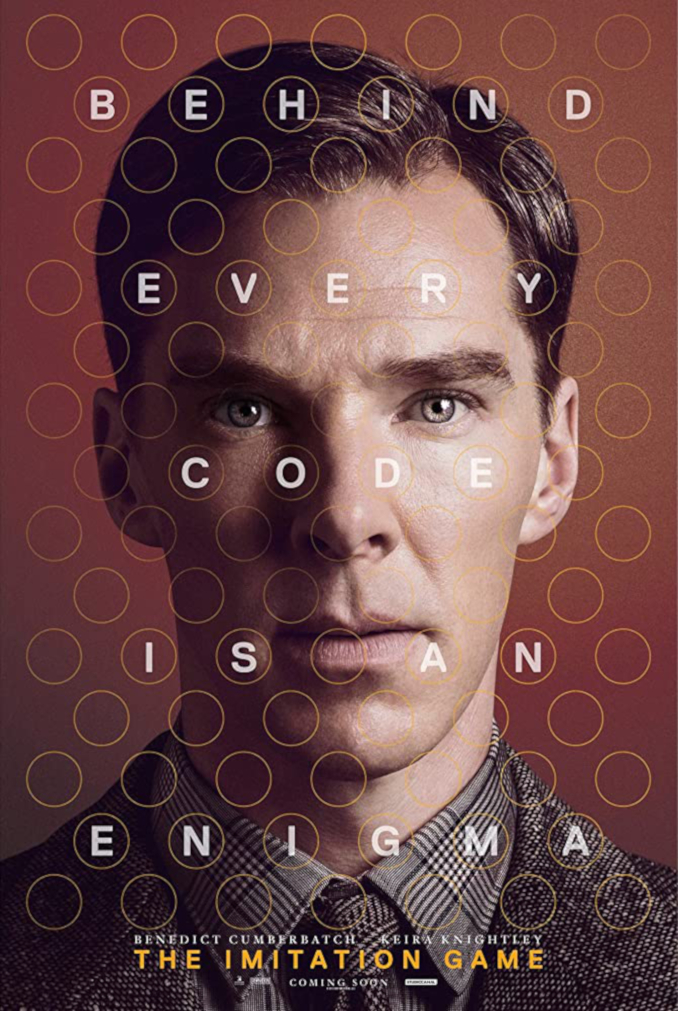 IMITATION GAME (2014) This biopic tells the story of Alan Turing, the father of modern computing and AI science (his Turing Test was initially called “the imitation game,” hence the movie title). He was most famous for improving the Enigma machine during WWII. The movie explores different aspects of freedom—national and individual. During the war, Turing’s mathematical genius probably shortened the war by allowing the Allies to decipher German military secrets. After the war, however, Turing became a victim of social intolerance. Deprived of his basic freedom and human rights, he committed suicide in 1954. IMITATION GAME (2014) This biopic tells the story of Alan Turing, the father of modern computing and AI science (his Turing Test was initially called “the imitation game,” hence the movie title). He was most famous for improving the Enigma machine during WWII. The movie explores different aspects of freedom—national and individual. During the war, Turing’s mathematical genius probably shortened the war by allowing the Allies to decipher German military secrets. After the war, however, Turing became a victim of social intolerance. Deprived of his basic freedom and human rights, he committed suicide in 1954. |
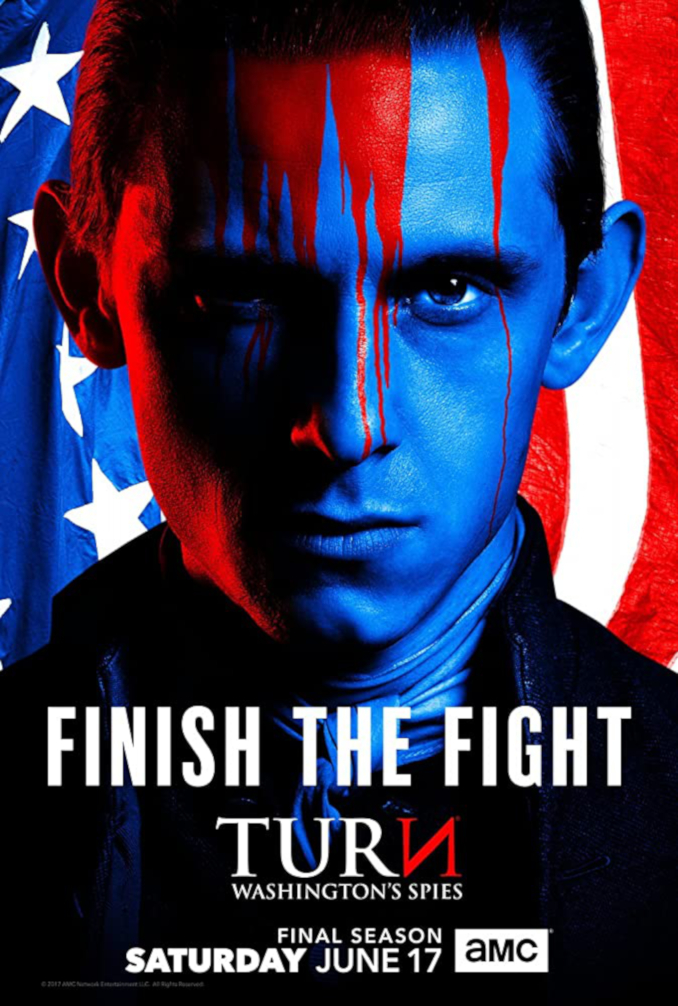 TURN: WASHINGTON SPIES (TV series, 2014-2017) Based on the novel by Alexander Rose, the story told in this television series is set during the American Revolutionary War, portraying some real-life revolutionaries and an unlikely spy ring that consisted of a Long Island farmer assisted by his trusted friends from childhood. The young insurgents learn everything—spy craft (pseudonyms, dead letter boxes, hanging petticoats on wash lines as signals), military strategies, and how to outsmart a British army that has been training for centuries. All they have are some smugglers’ tricks and lots of determination to turn the tides of war using the modern tool of intelligence gathering. TURN: WASHINGTON SPIES (TV series, 2014-2017) Based on the novel by Alexander Rose, the story told in this television series is set during the American Revolutionary War, portraying some real-life revolutionaries and an unlikely spy ring that consisted of a Long Island farmer assisted by his trusted friends from childhood. The young insurgents learn everything—spy craft (pseudonyms, dead letter boxes, hanging petticoats on wash lines as signals), military strategies, and how to outsmart a British army that has been training for centuries. All they have are some smugglers’ tricks and lots of determination to turn the tides of war using the modern tool of intelligence gathering. |
|
|
|
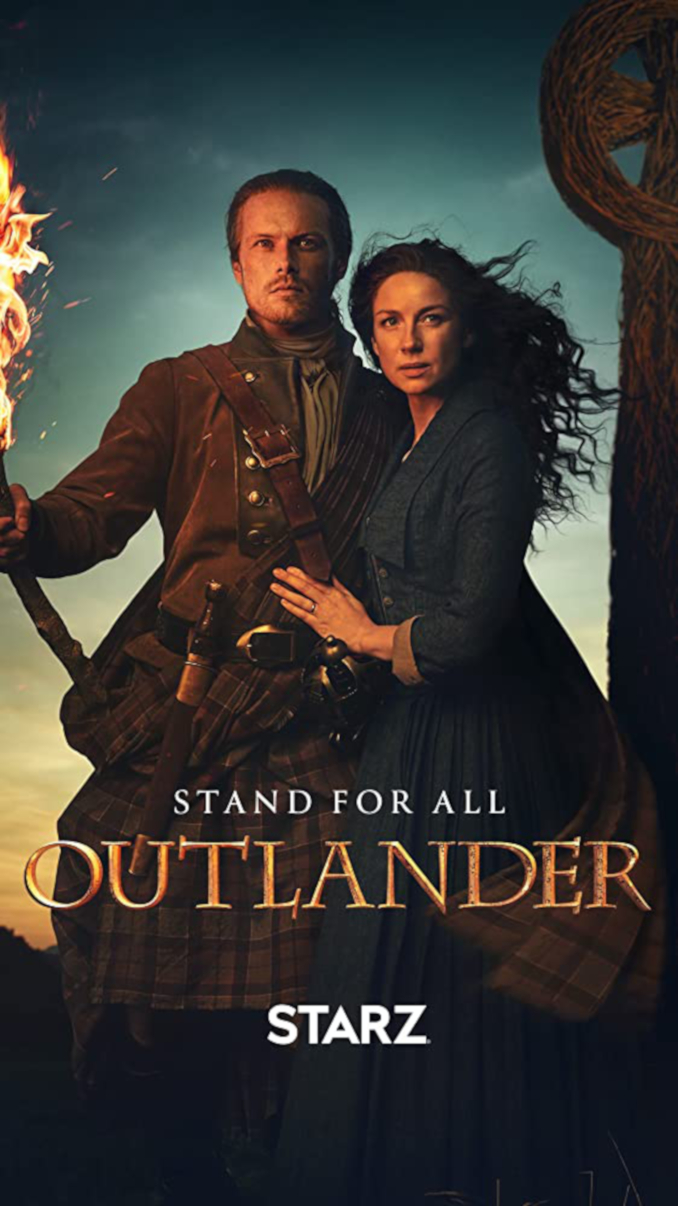 OUTLANDER (TV series, 2014-) The Outlander series is based on Diana Gabaldon’s novels. As often happens, the books are better than the series, but the show is still very valuable as insight into the Scottish fight for independence. (The series is also about a whirlwind romance, if this is your cup of tea.) The storyline involves time travel that allows a nurse from 1945 to experience daily life in the 18th century, but, excluding this fantasy device, both the novels and the show are extremely devoted to showing accurate historical details. As a result, Outlander combines an entertaining plot with a historical panorama of the English-Scottish conflict that led to Scotland’s absorption into the British crown. OUTLANDER (TV series, 2014-) The Outlander series is based on Diana Gabaldon’s novels. As often happens, the books are better than the series, but the show is still very valuable as insight into the Scottish fight for independence. (The series is also about a whirlwind romance, if this is your cup of tea.) The storyline involves time travel that allows a nurse from 1945 to experience daily life in the 18th century, but, excluding this fantasy device, both the novels and the show are extremely devoted to showing accurate historical details. As a result, Outlander combines an entertaining plot with a historical panorama of the English-Scottish conflict that led to Scotland’s absorption into the British crown. |
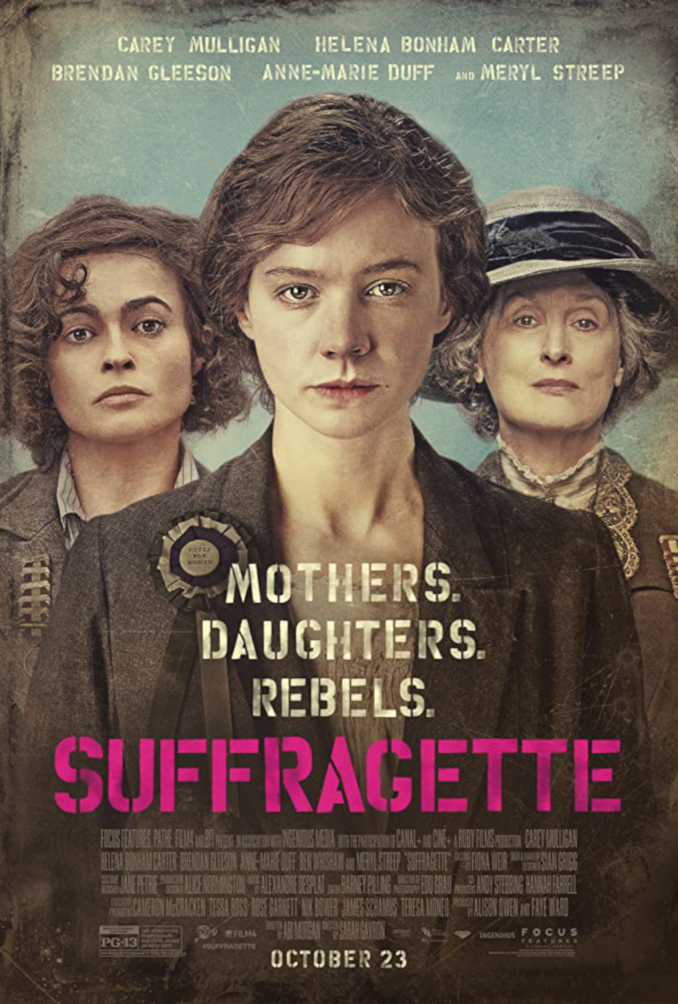 SUFFRAGETTE (2015) Meryl Streep stars as Emmeline Pankhurst in this account of the original suffrage movement, which started in Victorian England but did not get women’s voting rights granted there until 1928. Carey Mulligan and Helena Bonham-Carter co-star as activists in this forceful tale about the suppression of fundamental societal rights. SUFFRAGETTE (2015) Meryl Streep stars as Emmeline Pankhurst in this account of the original suffrage movement, which started in Victorian England but did not get women’s voting rights granted there until 1928. Carey Mulligan and Helena Bonham-Carter co-star as activists in this forceful tale about the suppression of fundamental societal rights. |
|
|
|
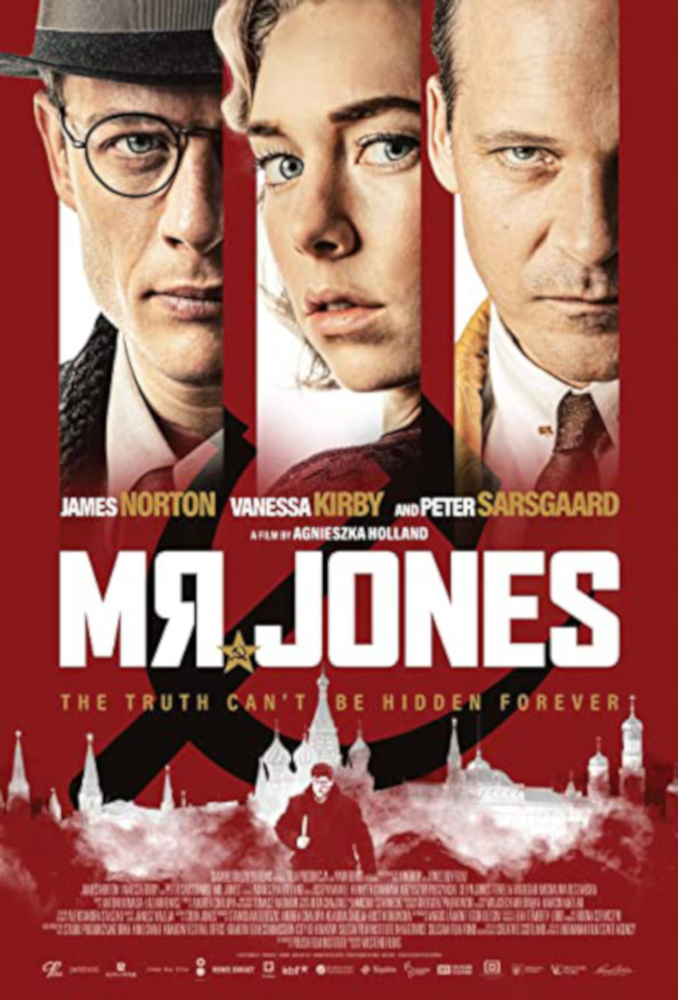 MR. JONES (2019) A biopic of a real journalist, Mr. Jones is also a movie about freedom of information long before Wikileaks was a household word. Welsh journalist Gareth Jones managed to get into Ukraine during Stalinist collectivization in 1930, and he was the first to report to the West the extent of famine and the extermination of the Ukrainian population. Unfortunately, his denouncement of Stalinism was not widely believed by the Western societies and was hotly denied by the Soviet Union—dismissed as exaggeration in the same way that his earlier articles about Hitler had been. This tragic story of a journalist whose attempt to warn the world was thwarted and denied at every turn (and who paid for his integrity with his life) was directed by Agnieszka Holland, a director whose opposition to the communist regime in Poland forced her into political exile. |
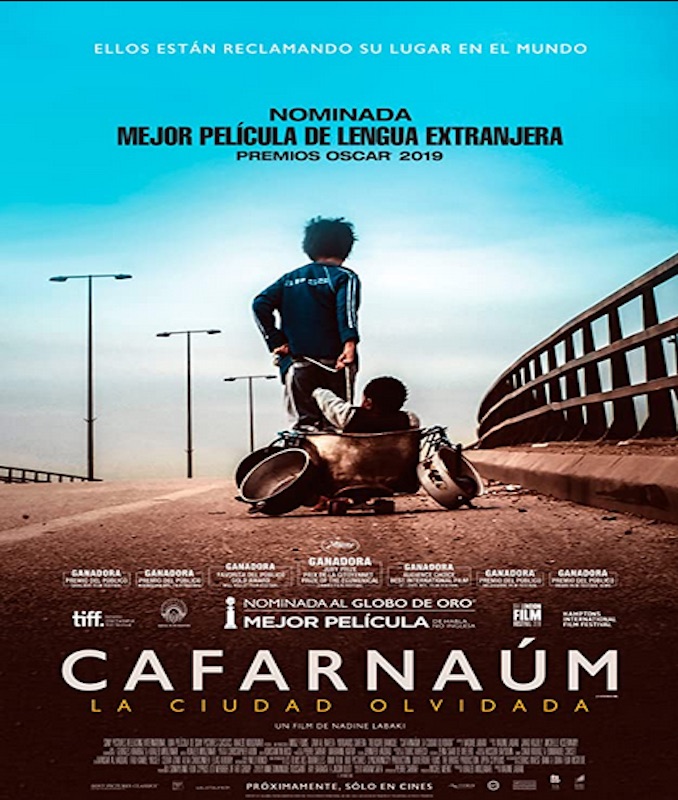 CAPERNAUM (2018) Director Nadine Labaki filmed her Cannes Grand-Prize-winning movie over several years in the poorest areas of Lebanon. A street boy Zain (played by a Syrian refugee Zain al’-Rafeea) sues his parents for having scores of children for whom they cannot provide anything. In his short life, he has witnessed abject poverty, his sister sold into marriage, and the abandonment of toddlers in the streets. Zain has been beaten and starved more times that he can count, and he wants the adults to stop the abuse. The film shows how poverty can affect basic life freedoms as deeply as institutionalized slavery. |
|
|
|
WORLD WAR TWO MOVIES
No list about freedom fighting would be complete without movies about WWII. Every decade since the war has produced some major military action dramas, especially in the British, American, and Russian cinemas. Hollywood gave the world such movies as Tora! Tora! Tora!, The Longest Day, and The Big Red One, while Britain produced The Bridge on the River Kwai and Battle of Britain. The steady stream of war movies coming out of Russia includes Elem Klimov’s Come and See and Nikita Mikhalkov’s Burnt by the Sun. These movies unflinchingly describe the horrors of battles on various fronts and the devastation of people’s lives that those battles brought on. Dunkirk and Saving Private Ryan are two big-canvas Hollywood productions that show the European war theater; both movies garnered numerous awards for their cinematic mastery.
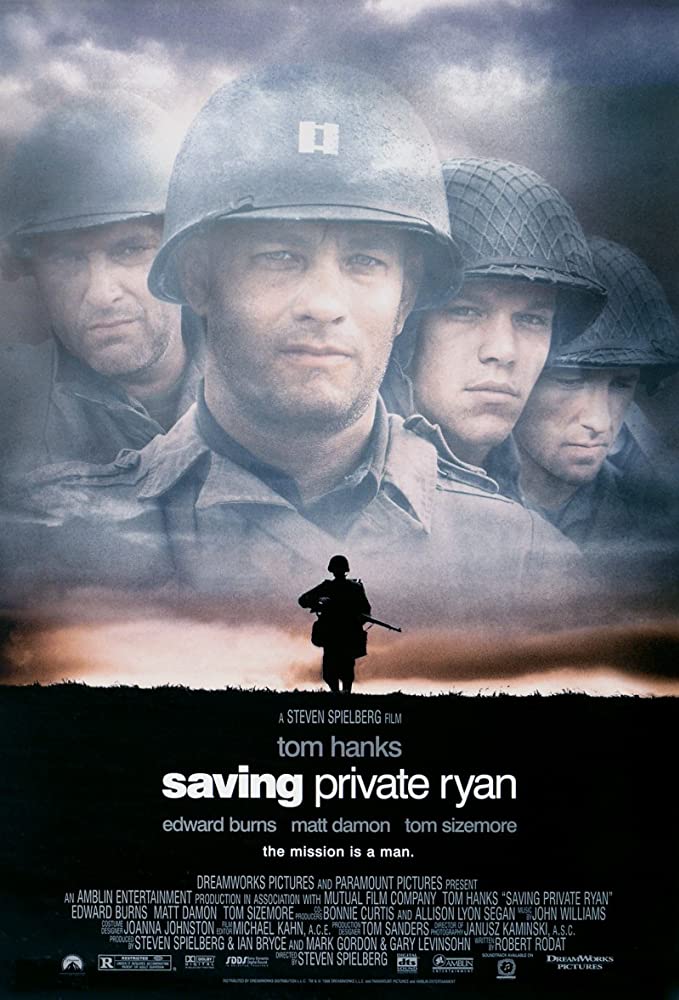 SAVING PRIVATE RYAN (1998) Directed by Steven Spielberg and starring Tom Hanks and Matt Damon, it is an epic WWII war story. It asks eternal questions about the morality of any war, the price of independence, and the right of any military commander to deprive a mother of her son in order to save another woman’s children. The movie garnered countless awards and became a perfect example of the big-scale Hollywood film where bigger (budget, cast, craftsmanship, star power) is indeed better. SAVING PRIVATE RYAN (1998) Directed by Steven Spielberg and starring Tom Hanks and Matt Damon, it is an epic WWII war story. It asks eternal questions about the morality of any war, the price of independence, and the right of any military commander to deprive a mother of her son in order to save another woman’s children. The movie garnered countless awards and became a perfect example of the big-scale Hollywood film where bigger (budget, cast, craftsmanship, star power) is indeed better. |
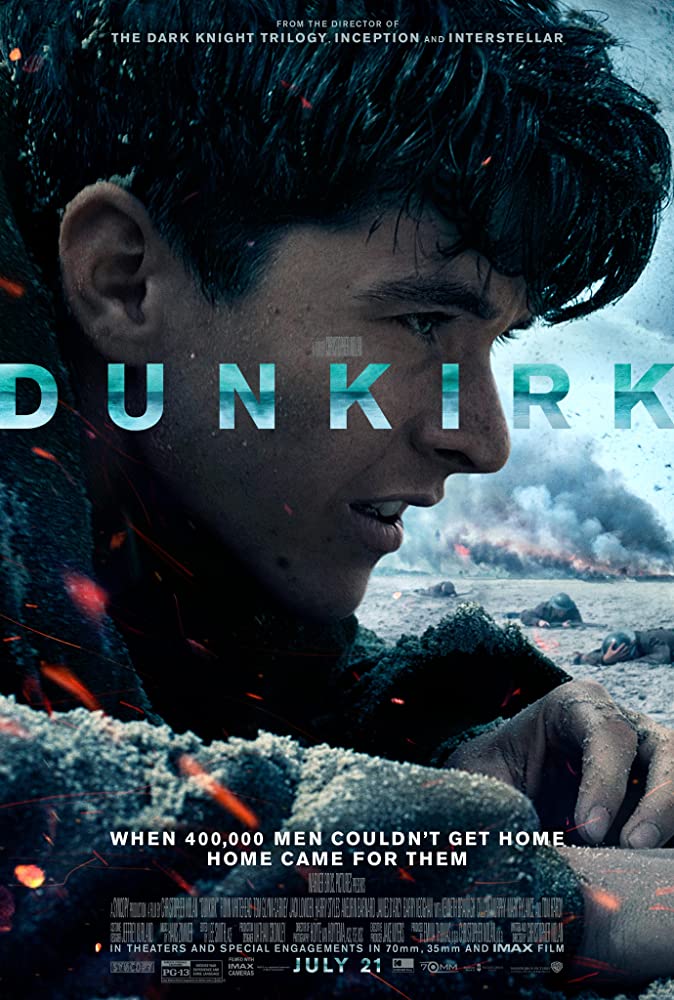 DUNKIRK (2017) Dunkirk is an Oscar-winner from Christopher Nolan, a director who is considered a modern master of big-scale adventure and sci-fi movies. Nolan recreates the key events in May 1940, when Britain evacuated over 300,000 Allied troops cornered on the French coast. In addition to the meticulously recreated military action, the movie portrays the incredible feat of soldiers being saved by hundreds of ships—ranging from transport barges to small private boats—that rallied across the channel to the rescue. DUNKIRK (2017) Dunkirk is an Oscar-winner from Christopher Nolan, a director who is considered a modern master of big-scale adventure and sci-fi movies. Nolan recreates the key events in May 1940, when Britain evacuated over 300,000 Allied troops cornered on the French coast. In addition to the meticulously recreated military action, the movie portrays the incredible feat of soldiers being saved by hundreds of ships—ranging from transport barges to small private boats—that rallied across the channel to the rescue. |
|
|
|
SELECTED DOCUMENTARIES
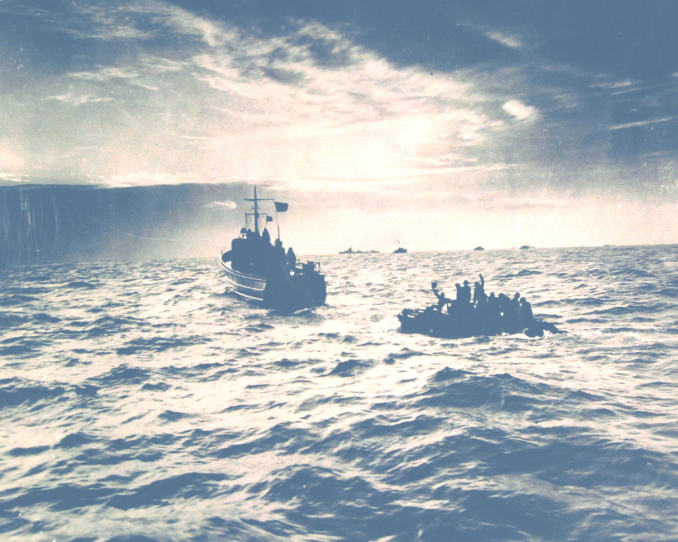 D-DAY IN COLOUR (2004) This is a documentary with rare color footage of Europe during WWII, including the D-Day landing in Normandy and the subsequent Allied push into French territory. Here is a close-to-the-ground record of daily life and daily war during the Allied landing. D-DAY IN COLOUR (2004) This is a documentary with rare color footage of Europe during WWII, including the D-Day landing in Normandy and the subsequent Allied push into French territory. Here is a close-to-the-ground record of daily life and daily war during the Allied landing. |
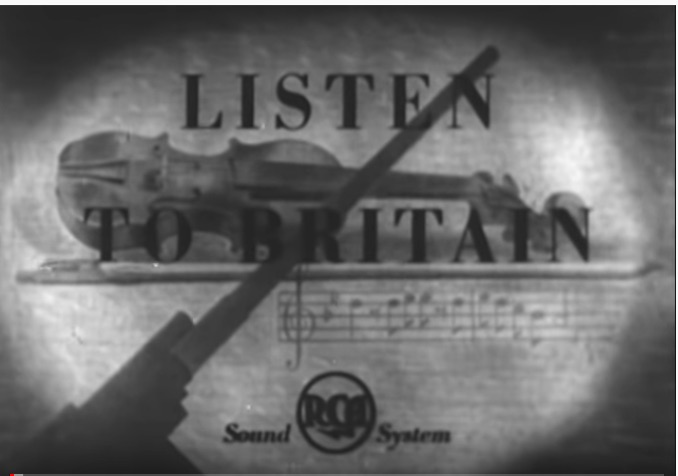 LISTEN TO BRITAIN (1942) A propaganda short produced by the British Ministry of Information in support of the war effort. The film was produced in 1942, when continental Europe was firmly in the grip of German occupation and the D-Day landing of the U.S. troops in Normandy was still years away. Britain was, to a great extent, going it alone at this point. This short includes a mixture of images of English daily life and war news footage. LISTEN TO BRITAIN (1942) A propaganda short produced by the British Ministry of Information in support of the war effort. The film was produced in 1942, when continental Europe was firmly in the grip of German occupation and the D-Day landing of the U.S. troops in Normandy was still years away. Britain was, to a great extent, going it alone at this point. This short includes a mixture of images of English daily life and war news footage. |
|
|
|
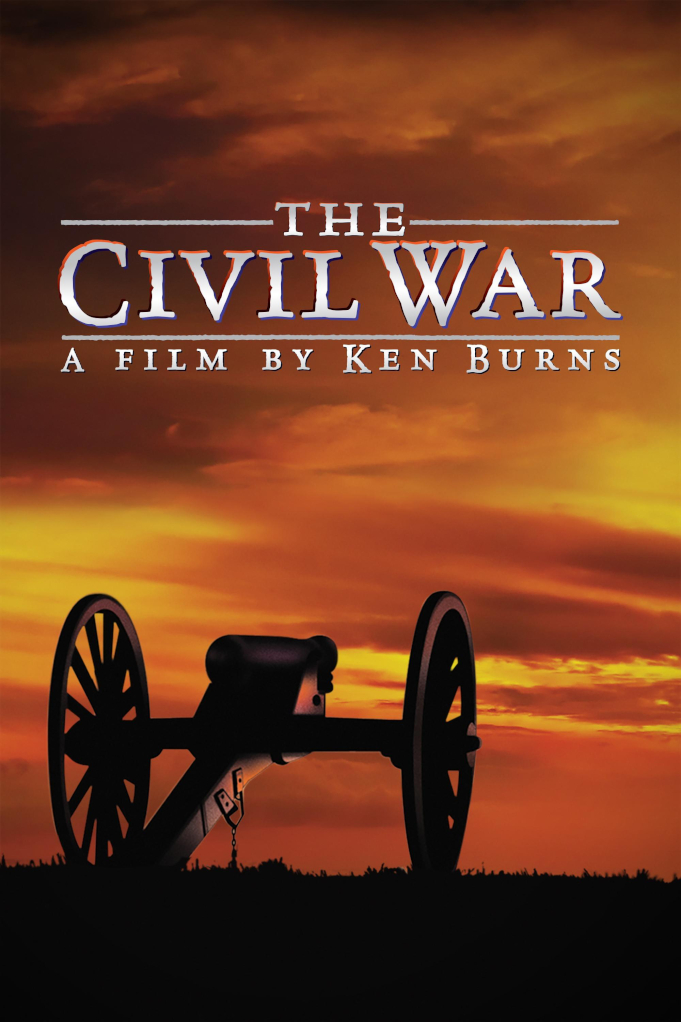 THE CIVIL WAR (1990) Ken Burns’ classic documentary on the American Civil War is a must-see for anyone interested in history—and for anyone wondering if history is repeating itself, with American society being split into two completely opposed views once again. THE CIVIL WAR (1990) Ken Burns’ classic documentary on the American Civil War is a must-see for anyone interested in history—and for anyone wondering if history is repeating itself, with American society being split into two completely opposed views once again. |
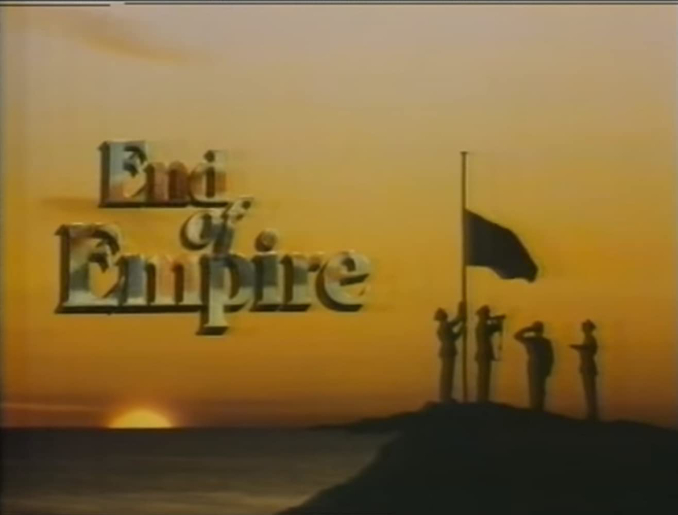 END OF EMPIRE (UK, 1985) A 13-episode series on the end of British colonialism, each episode deals with a different country that used to be part of the British empire and shows the process of dismantling the colonial empire. Through interviews and archival footage, the series documents two opposing points of view—that of British politicians and that of the citizens of the colonized nations. First episode: END OF EMPIRE (UK, 1985) A 13-episode series on the end of British colonialism, each episode deals with a different country that used to be part of the British empire and shows the process of dismantling the colonial empire. Through interviews and archival footage, the series documents two opposing points of view—that of British politicians and that of the citizens of the colonized nations. First episode: |
| https://youtu.be/Y7HmBmWz9mI |
|
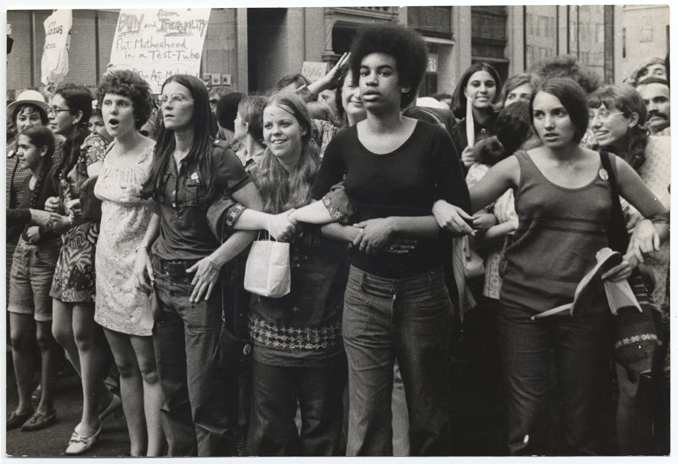 SHE’S BEAUTIFUL WHEN SHE’S ANGRY (2014) A good historic footnote to the American women’s rights movement of the 1960s and 1970s, this documentary seeks to remind the generations that followed what this mid-20th-century social revolution was about. The film includes documentary photos and footage, as well as interviews with women who look back at the 1966-1971 period and discuss what they became in later years. SHE’S BEAUTIFUL WHEN SHE’S ANGRY (2014) A good historic footnote to the American women’s rights movement of the 1960s and 1970s, this documentary seeks to remind the generations that followed what this mid-20th-century social revolution was about. The film includes documentary photos and footage, as well as interviews with women who look back at the 1966-1971 period and discuss what they became in later years. |
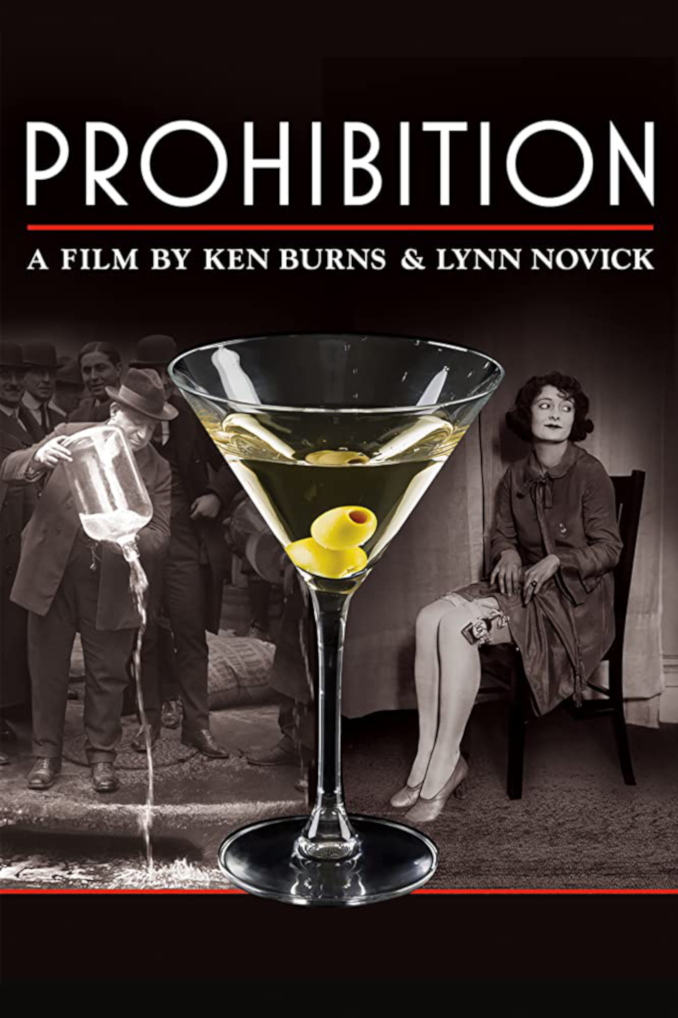 PROHIBITION (2011) Ken Burns and Lynn Novick, masters of documentary narration, tackle the question of individual rights versus government ideas of what is good for the individual. The failed social experiment of making people give up on booze is documented in three episodes through a very modern soundtrack and style of editing. It’s a story about how “the law made Americans lawless.” PROHIBITION (2011) Ken Burns and Lynn Novick, masters of documentary narration, tackle the question of individual rights versus government ideas of what is good for the individual. The failed social experiment of making people give up on booze is documented in three episodes through a very modern soundtrack and style of editing. It’s a story about how “the law made Americans lawless.” |
|
|
https://youtu.be/PZPaMkMMVUA |
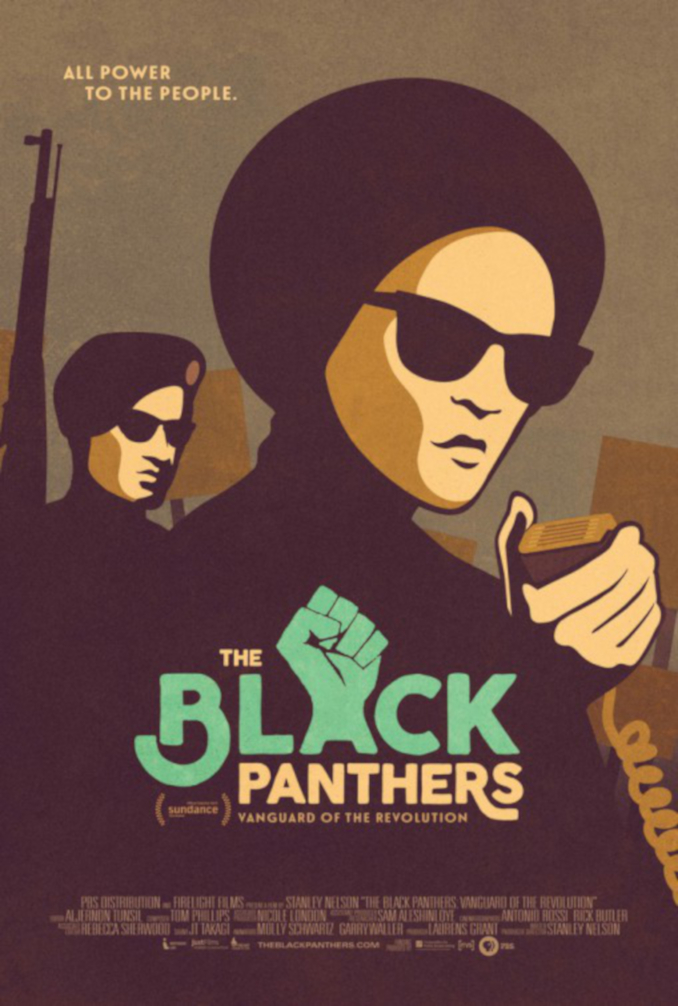 THE BLACK PANTHERS: VANGUARDS OF THE REVOLUTION (2015) This PBS documentary examines the history of the Black Panther movement, from its roots in community activism all the way to achieving national fame and becoming an FBI target. Both documentary footage and present-day interviews are included, presenting the Black Panthers as the precursor of current movements and protests against racial inequality in America. THE BLACK PANTHERS: VANGUARDS OF THE REVOLUTION (2015) This PBS documentary examines the history of the Black Panther movement, from its roots in community activism all the way to achieving national fame and becoming an FBI target. Both documentary footage and present-day interviews are included, presenting the Black Panthers as the precursor of current movements and protests against racial inequality in America. |
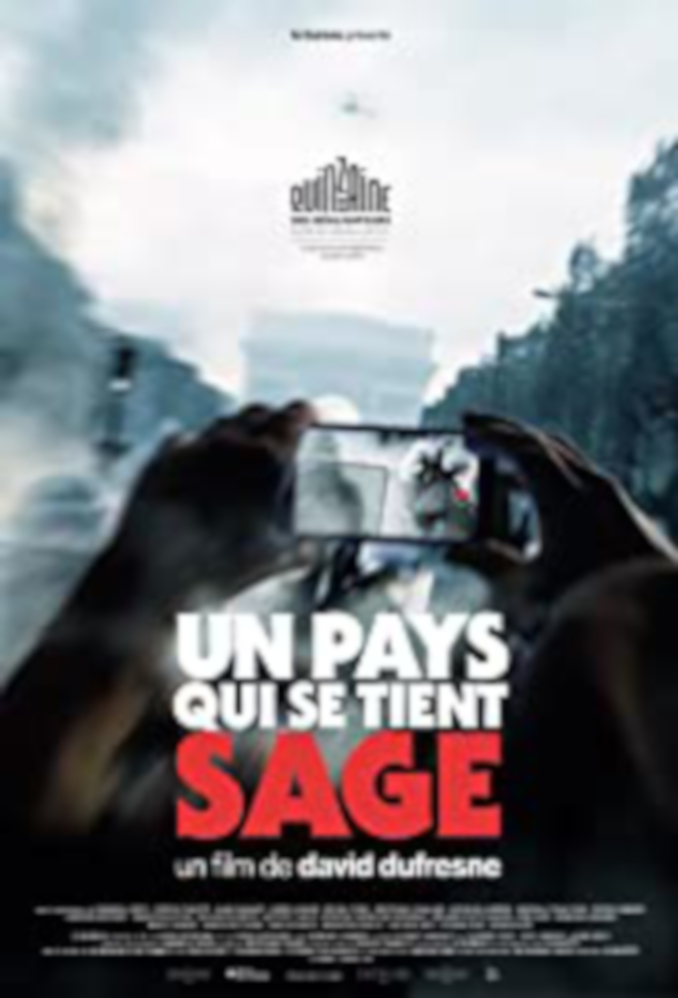 THE MONOPOLY OF VIOLENCE (2020) This documentary about the “yellow vest” protests on the streets of French cities examines the nature of institutionalized violence and asks questions about the role of the police as an instrument of protection for governmental power. This question is particularly important in a country with republican traditions going all the way back to the French Revolution. Recent police violence in France is erasing this social tradition, undermining France’s standing as an established democracy. THE MONOPOLY OF VIOLENCE (2020) This documentary about the “yellow vest” protests on the streets of French cities examines the nature of institutionalized violence and asks questions about the role of the police as an instrument of protection for governmental power. This question is particularly important in a country with republican traditions going all the way back to the French Revolution. Recent police violence in France is erasing this social tradition, undermining France’s standing as an established democracy. |
| https://youtu.be/F56O3kZ9qr0 |
|
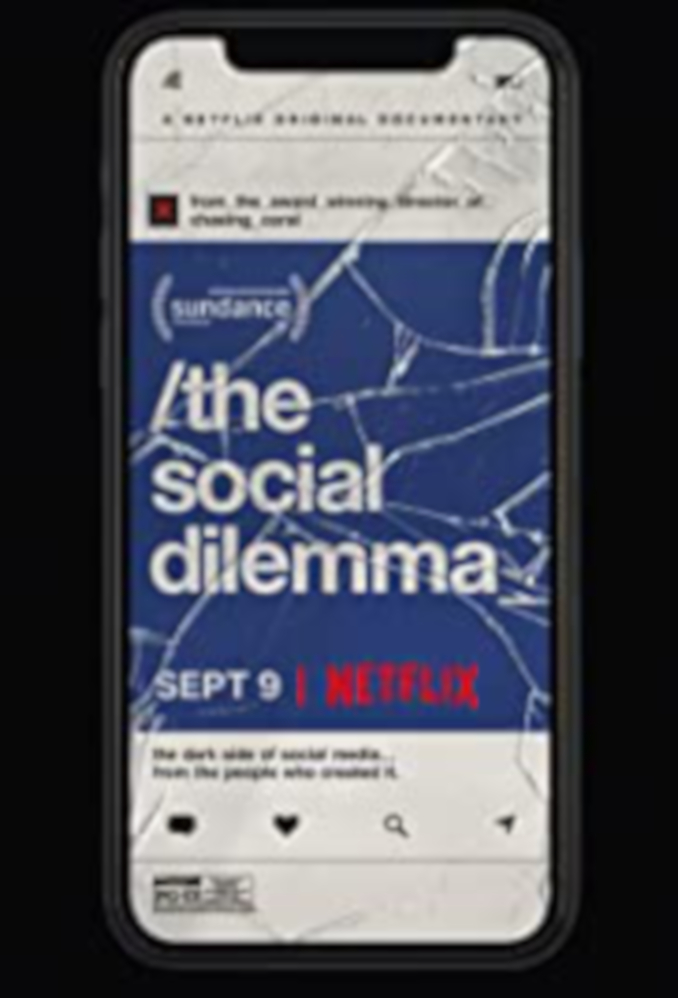 THE SOCIAL DILEMMA (2020) The Social Dilemma examines the total lack of privacy when using Google or social apps like Facebook. Every stroke is monitored and used to tailor advertising, gather big data, and influence attitudes and behaviors related to voting, political views, and economic decisions. |
|
|
|
© Copyright 2024 Solari, Inc. All Rights Reserved
